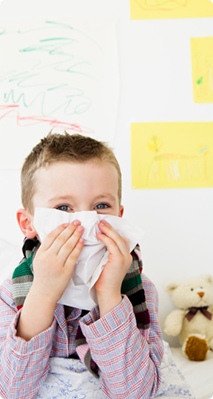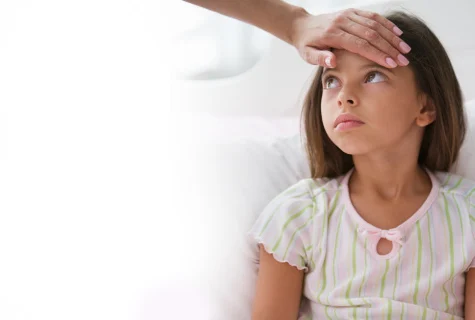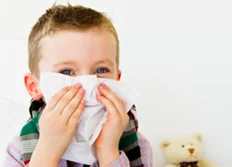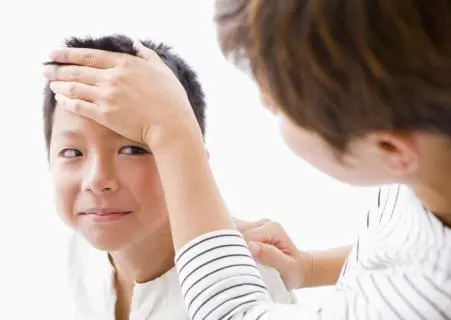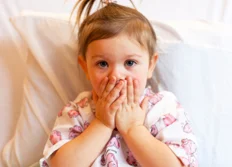The common cold really is well named – it’s one of the most common things that’ll make your little one feel poorly. Luckily, there are lots of ways you can help.
From making sure they get enough to drink, to helping clear blocked noses or bring down a fever, there’s plenty of ways to take care of your little one.
How do I know if my little one has a cold or flu?
The common cold can be caused by more than 200 different viruses. Children can catch several colds a year as their immune systems are more vulnerable to infections. Symptoms usually develop over a couple of days.
Look out for some of these common cold symptoms:
runny nose or blocked nose
sneezing
general tiredness and feeling out of sorts.
If it’s the flu, symptoms will differ and can include chills or a rapid fever.
How can I help them feel better?
There’s no cure for the common cold, but there’s plenty you can do to help your little one feel more like themselves again. The most important thing is to help make them feel comfortable.
Are they running a fever?
Running a temperature can sometimes be a less-common symptom of a cold. So are uncomfortable aches and pains that can make it hard for your baby to settle. CALPOL® Infant Suspension uses paracetamol to help relieve these symptoms and gets to work on a fever in just 15 minutes. It's for babies over 2 months, weighing over 4kg and not premature. For children 6 years and older, you can use CALPOL® SIXPLUS™ Suspension instead.
Do they have a blocked or stuffy nose?
See our tips on clearing a blocked nose, including using a nasal spray.
Handy tip
Your child might lose their appetite – this should only last a couple of days. Just let them eat when they are hungry.
Some more simple tips
Make sure your child gets plenty of restful sleep.
Keep them well hydrated.
If they have a fever, keep them cool - don't wrap them up too warmly. If they're in bed, a light sheet should be fine.
How long will it last?
It should pass soon – it usually lasts about a week.
For younger children a cold can last up to 14 days.
When to call the doctor
When your little one gets a cold, the chances are they’ll be just fine after a few days.
But you should get in touch with your GP if:
your child is finding it hard to breathe
your baby is less than 3 months, and has a temperature over 38°C
your child’s symptoms last more than 10 days
they have nasal pain after 2-4 days of treatment at home
they have severe earache
their symptoms are getting worse, rather than better
your little one has throat pain for more than 3-4 days or if the sore throat is very severe
they develop symptoms such as pain or swelling in the face or chest, a headache or very bad throat pain.
The information on this page is not exhaustive. You know your child best, if you have any concerns about your child, you should contact your GP.
See also
Fever (high temperature)
When your child suffers from a fever, it can be a sign that their body is fighting off an infection. Make sure you know what to look out for and when a high temperature becomes serious.
Aches & pains
Every child suffers aches and pains as they’re growing up. Find out what might be causing them and what you can do to help.
Contact the HSE
For health advice and reassurance.
1850 24 1850
